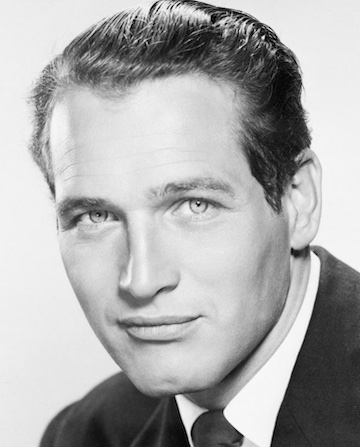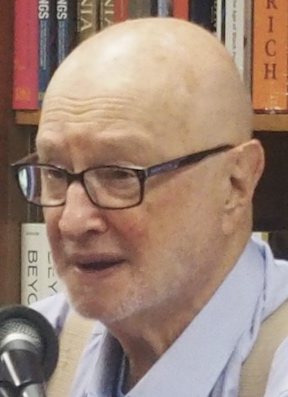January 26
Paul Newman

On this date in 1925, actor and philanthropist Paul Newman was born in a suburb of Cleveland, Ohio, to a Catholic mother and a Jewish father. Newman enlisted in the Naval Air Corps but his service was cut short due to color blindness. He served in the Navy in the South Pacific during World War II. Upon his return from the war, Newman enrolled at Kenyon College, Ohio, and received his B.A. in 1949.
He worked in summer stock, married Jackie Witte, with whom he had three children, enrolled at the Yale University grad program in acting, then left it for Broadway. His first Broadway success was playing the lead in “Picnic” (1953). Newman was admitted to the Actor’s Studio, studying “method” acting. His first film, “The Silver Chalice,” came out in 1954 and was a flop. His breakthrough role was portraying boxer Rocky Graziano in “Somebody Up There Likes Me” (1956). He met actress Joanne Woodward while making “The Long, Hot Summer” (1957) and married her in 1958. They had three daughters.
Newman was nominated often for “best actor” Oscars for such movie classics as: “Cat on a Hot Tin Roof” (1958), “The Hustler” (1961), “Hud” (1963) and “Cool Hand Luke” (1967). He won for “The Color of Money” (1987). Other films include “Butch Cassidy and the Sundance Kid” and “The Sting,” in which he was paired with Robert Redford.
Newman founded “Newman’s Own” line of food, donating much of the proceeds to charity. Newman was listed on the website of the Unitarian Universalists, which is creedless, as one of its famous members. According to Who’s Who in Hell, edited by Warren Allen Smith, Newman once told TV interviewer Barbara Walters that he didn’t believe in an afterlife. (D. 2008)
“Although never overtly religious, Newman said he chose to think of himself as Jewish because it was ‘more challenging.’ ”
— Associated Press obituary (Sept. 27, 2008)
Jules Feiffer

On this date in 1929, cartoonist, playwright and author Jules Ralph Feiffer was born in the Bronx, New York to David Feiffer, an unsuccessful men’s shop entrepreneur, and Rhoda (Davis) Feiffer, who sold dress designs and largely supported their family.
His weekly editorial cartoons appeared in the Village Voice for 42 years. Feiffer won the Pulitzer Prize for editorial cartooning in 1986. His cartoons have been published in 19 books. He was named to the Comic Book Hall of Fame in 2004.
Feiffer’s anti-military animated cartoon “Munro” won an Academy Award in 1961. His comedy “Little Murders” (1967) won an Obie. Among his other plays and revues is “Knock Knock,” which had a 1976 Broadway run starring Lynn Redgrave. Feiffer wrote the screenplay for the film “Carnal Knowledge” (1971), which spawned censorship and lawsuits.
Feiffer was married three times and had three children. His daughter Halley Feiffer is an actress and playwright. In 2016 he married freelance writer Joan “JZ” Holden. The ceremony combined Jewish and Buddhist traditions. She is the author of Illusion of Memory (2013).
He died of congestive heart failure nine days before his 96th birthday at his home in Richfield Springs, N.Y. (D. 2025)
PHOTO: Feiffer reading at Politics and Prose in 2018 in Washington, D.C. Photo by SLOWKING under CC BY-NC.
“Christ died for our sins. Dare we make his martyrdom meaningless by not committing them?”
— Lines from Feiffer's play "Little Murders," first performed on and off Broadway in the late 1960s
